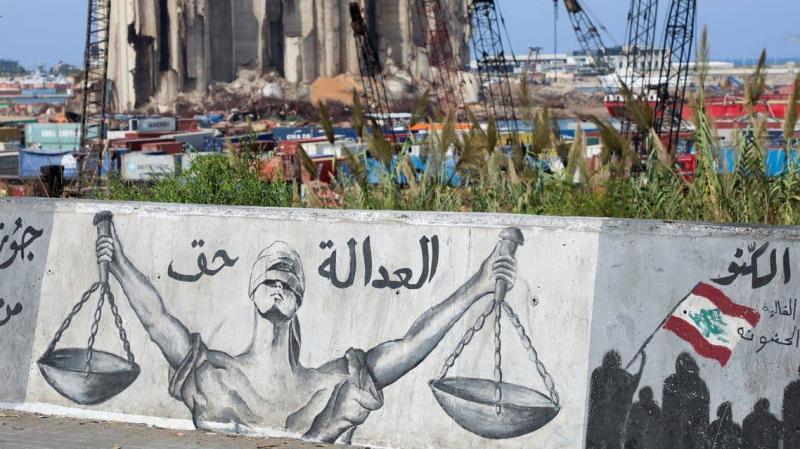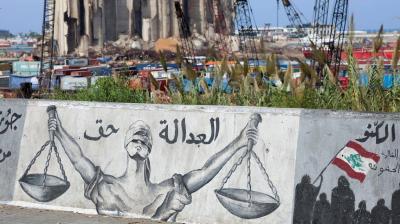The "Asharq Al-Awsat" reported that Lebanese President Michel Aoun criticized the "Shiite duo," represented by "Amal Movement" and "Hezbollah," without naming them. He called for an end to "political exploitation and the invocation of immunities, privileges, and legal loopholes that paralyze the competent judiciary's ability to prosecute, accuse, and convict." Aoun received a petition from citizens regarding the continuous detention of Customs Director Badri Daher (who is close to Aoun's movement), which has lasted for more than a year and seven months, and he also met with a delegation from the families of those detained in the Beirut port explosion. Members of the delegations told Aoun that they were "waiting anxiously, like the families of the innocent victims who were killed and injured, as well as owners of property that suffered significant damage in the capital Beirut, for fair and just judicial decisions," according to the Lebanese presidency.
Aoun emphasized his commitment to the "independence of the judiciary in prosecution, investigation, and ruling on crimes brought before the competent court," as much as he is concerned about "the principles that govern the judiciary's work, including that every complainant should find their judge, and that the presumption of innocence prevails until conviction." He stressed the "necessity for a decision to be issued by the investigative judge after being freed from imposed restrictions, whereby the Higher Judicial Council assumes its jurisdiction in accordance with the charges, so that the innocent detainees are exonerated and those responsible at all levels, whether detained or free, are held accountable. This is all based on the notion that delayed justice is not justice; in fact, it is more than that, it is justice that refrains from asserting the truth."
He added: "It is time for the complete truth about the circumstances of the catastrophic Beirut port explosion and the responsibilities to be known, and for political exploitation and the invocation of immunities, privileges, and legal loopholes that paralyze the competent judiciary's ability to prosecute, accuse, and convict to cease." Aoun stated that "injustice is harsh and unacceptable when justice is retracted, constrained, partial, or selective, and all of that is due to political oppression and vindictiveness." He informed the delegation that he would not relent "until the truth is brought forth in all its forms in this case, noting that legal interpretations exist to close legal gaps or circumvent fabricated and vindictive restrictions in the lawsuits."
Finance Minister Youssef Khalil refuses to sign the partial judicial appointments completed by the Supreme Judicial Council a month ago, which included heads of appeal courts, as their non-appointment hampers the work of the investigating judge, Tariq Bitar. The "Shiite duo" insists that ministers must be tried before the "Higher Council for the Trial of Presidents and Ministers," and that members of parliament are immunized in their capacity as parliamentary members during ordinary or extraordinary legislative sessions.




